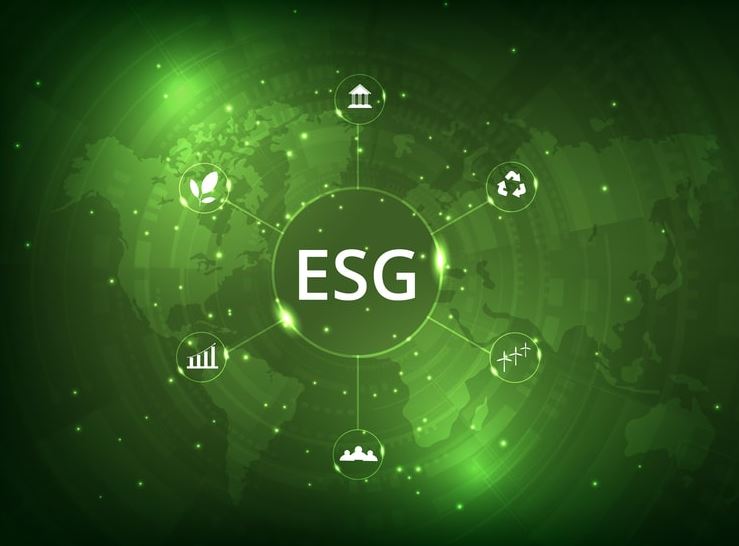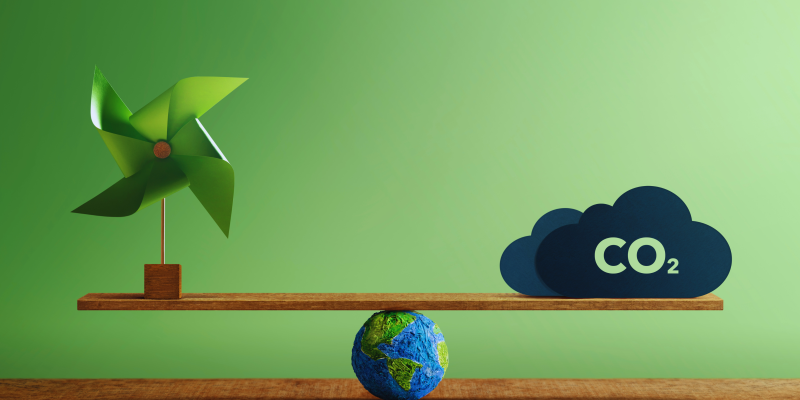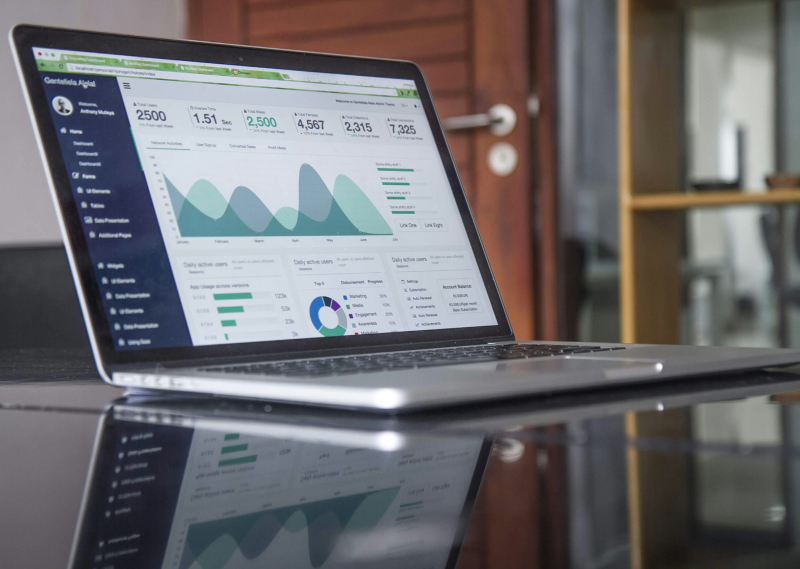The business world is evolving quickly, with new technologies and innovative practices engaging consumers across various emerging markets.
As we look to 2025, the momentum of these developments shows no signs of slowing. They promise continued growth and transformation in established and emerging sectors.
A New Era of Business
The global pandemic of 2020 fundamentally transformed the way in which businesses operate, accelerating the adoption of trends such as remote working and flexible office environments. These shifts, initially born out of necessity, have since become standard components of modern business practices.
Five years on, research indicates that such trends are continuing to evolve. Businesses are focusing more on long-term sustainability, digital transformation, and improving the overall employee experience to remain competitive in a rapidly changing market.
As we look to the future, the ongoing impact of these changes is shaping a new era of business. Let’s explore 6 key business trends in Australia for 2025.

Australia’s Top 6 Business Trends for 2025
1. Artificial Intelligence
In recent years, leading tech giants such as Meta, Apple, Google and Microsoft have invested heavily in developing cutting-edge AI models and integrating these into various sectors, from enterprise solutions to healthcare and entertainment.
As AI continues to drive change across industries, it’s clear that this focus on AI development and adoption will remain a central business trend well into 2025 and beyond.
In 2024, AI language tools dominated the spotlight, with the US market spearheading the most advanced models. OpenAI’s ChatGPT, powered by GPT-4, emerged as the language model of choice for businesses worldwide, offering a superior combination of improved voice and visual capabilities, unmatched accuracy, and real-time internet access.
However, in January 2025, the AI market was rocked by the launch of DeepSeek, a new language model from China. With performance on par with ChatGPT’s latest version, DeepSeek was developed for a fraction of the cost, is free to consumers, and – most notably – is open-source.
The extent of this market disruption became apparent with Nvidia’s 17% drop in stock, signalling a considerable challenge to its long-standing dominance in the AI hardware market. Since the mid-2000s, Nvidia has remained a major player, driven by its premium GPUs for AI and deep learning applications. However, the rise of DeepSeek threatened this position, erasing nearly $600 billion in market value when Wall Street opened.
While advanced AI language models will remain a key focus, in 2025 the trend in AI for businesses is expected to shift towards automating administrative tasks – such as payroll or data entry – and customer service to improve efficiency.
In creative industries, AI will also play an increasingly pivotal role. It will assist with designing and creating content for video games, movies, and other forms of entertainment, increasing creative potential and streamlining production processes.
2. Circular Economy
Sustainability has evolved from a buzzword to a core business strategy that organisations can no longer overlook.
As younger generations lead the way in advocating for environmental and social responsibility and as climate awareness continues to grow, consumers are prioritising eco-friendly practices.
This has sparked a shift towards a circular economy, which focuses on waste reduction, reusing materials, and extending product lifecycles – practices that help to minimise environmental impact while providing substantial cost savings and financial advantages to businesses.
By reducing reliance on new raw materials, businesses can lower production costs, reduce their dependency on external suppliers, and minimise their environmental footprint.
This transition aligns closely with ESG principles, which have become key considerations for investors, stakeholders, and customers. Adopting circular economy models allows businesses to demonstrate their commitment to sustainability, social responsibility, and ethical governance – the core pillars of a strong ESG strategy.
As we move into 2025, the trend toward circular economies will gain more traction, presenting businesses with opportunities to improve customer engagement, boost profitability, and distinguish themselves in an increasingly competitive and environmentally conscious market.

3. Personalised Customer Experiences
In 2025, personalised customer experiences will emerge as a cornerstone of business success, fuelled by advances in AI, machine learning, and data analytics.
As consumers increasingly seek tailored interactions, businesses will leverage vast amounts of customer data to create personalised experiences that cater to individual preferences, behaviours, and needs.
From customised product recommendations to personalised marketing campaigns and customer support, businesses will rely on sophisticated algorithms to predict and meet customer needs in real-time.
This level of personalisation can help to boost customer satisfaction, encourage stronger brand loyalty, and drive higher conversion rates.
With the rise of AI-powered tools and machine learning, businesses will be able to create dynamic and engaging customer journeys that can adapt to each individual’s unique situation. In addition to improving product or service offerings, personalised experiences will extend to customer service, with chatbots and virtual assistants providing quicker, more relevant solutions.
Personalisation is a business model trend that can help organisations stand out in a crowded marketplace, enabling them to achieve growth and long-term success.
4. Electric Vehicles and Lithium Batteries
Another emerging business trend gaining momentum is electric vehicles (EVs) and lithium batteries.
Over the past few decades, global markets have embraced EVs, with consumers becoming more educated about their environmental and cost-saving benefits – positioning them as a preferred choice over traditional fuel-powered vehicles.
The growing competition within the EV market has spurred advancements in EV technology, with companies like Tesla leading the charge through much of the 2010s. However, China has since emerged as a dominant force, offering affordable EVs and scaling production through major players such as BYD and MG, leading to an increase in global shipments.
Governments worldwide have played a key role in accelerating this shift by offering incentives such as tax breaks to encourage consumers to transition from fuel-powered vehicles to EVs. In Western Australia, the state government has introduced a rebate of up to $3,500 for EV buyers, with over 10,000 consumers already claiming a combined payout of $36.2 million.
Furthermore, developments in battery technology have significantly improved charging speed and reduced costs, making EVs even more accessible and appealing to customers.
Integrating solar energy with these batteries presents exciting possibilities, paving the way for a more sustainable and energy-efficient future. As EVs continue to evolve, they will drive innovation across both the automotive and energy sectors, establishing themselves as a significant new business trend in 2025 and beyond.

5. Work Flexibility
Work flexibility signalled the most significant emerging trend in business during the 2020 pandemic, as businesses swiftly adapted to remote working in response to lockdown restrictions.
Remote working has remained popular long after the pandemic ended, with employees appreciating the benefits of reduced commute times and increased productivity. This shift has led to a re-evaluation of traditional work environments and expectations.
In 2025, employees are placing a growing emphasis on flexible work arrangements. As a result, hybrid working models – where employees divide their time between remote work and in-office collaboration – have become a prominent business trend, offering a balance of flexibility and in-person engagement.
This working arrangement is set to accelerate in 2025 as businesses embrace hybrid models to attract and retain highly skilled workers while cultivating a productive, flexible and engaging work environment.
6. Cyber Security
Cyber insurance has become a crucial business market trend as organisations seek to mitigate the growing risks associated with cyber attacks and data breaches.
As AI continues to advance, the importance of cybersecurity is growing exponentially, particularly as businesses transition from traditional brick-and-mortar operations to e-commerce platforms.
With this digital transformation, organisations are becoming more vulnerable to sophisticated cyber attacks, driving an increasing demand for tough cybersecurity measures to protect sensitive information and systems.
These cyber threats are becoming more complex, utilising advanced AI and machine learning techniques to bypass conventional security protocols. This makes it even more difficult for businesses to safeguard their digital assets and maintain trust with customers.
In response to the growing threats, governments worldwide are investing heavily in cybersecurity infrastructure, aiming to mitigate the risks associated with cybercrime and protect critical assets. This includes tightening regulatory frameworks, implementing more stringent security standards, and supporting research into emerging technologies.
In 2025, businesses must prioritise strong cybersecurity practices and invest in cyber insurance, to protect their operations, ensure compliance, and safeguard their reputation.
Business Trends Going Forward in 2025
These 6 current business trends are likely to trigger significant change across industries in 2025.
With technology constantly evolving and a steady flow of new information, it can be challenging to stay on top of the latest trends in business and identify the most reliable sources.
By staying informed and sharing knowledge with colleagues, clients and industry peers, you can position yourself to seize future opportunities and grow.
Ledge Finance is one of Australia’s most reliable finance solution providers. Contact our team today to discuss your requirements.





